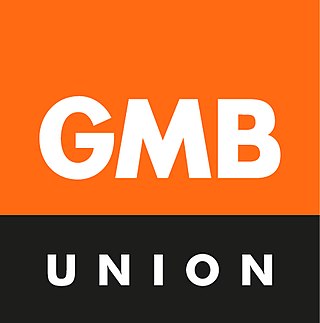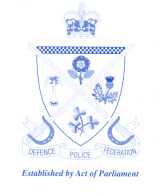
Ireland is a parliamentary, representative democratic republic and a member state of the European Union. While the head of state is the popularly elected President of Ireland, it is a largely ceremonial position, with real political power being vested in the Taoiseach, who is nominated by the Dáil and is the head of the government.

Unison is a British trade union. Along with Unite, Unison is one of the two largest trade unions in the United Kingdom, with over 1.2 million members who work predominantly in public services, including local government, education, health and outsourced services.
In British politics, an affiliated trade union is one that is linked to the Labour Party. The party was created by the trade unions and socialist societies in 1900 as the Labour Representation Committee and the unions have retained close institutional links with it.

The GMB is a general trade union in the United Kingdom which has more than 560,000 members. Its members work in nearly all industrial sectors, in retail, security, schools, distribution, the utilities, social care, the National Health Service (NHS), ambulance service and local government.

The Public and Commercial Services Union (PCS) is the eighth largest trade union in the United Kingdom. Most of its members work in UK government departments and other public bodies.

Labour Students is a student organisation within the Labour Party of the United Kingdom. It is a network of affiliated college and university clubs, known as Labour Clubs, who campaign in their campuses and communities for Labour's values of equality and social justice.

The National Union of Students (NUS) is the peak representative body for Australian higher education students. A student union is eligible for membership by its classification as a legitimate student representative body at any Australian post-secondary training provider. The NUS typically organises NUS National Conference (NatCon), NUS Education Conference (EdCon), and the Presidents' Summit each year in addition to other smaller conferences.

The Public Service Alliance of Canada is one of Canada's largest national labour unions. It is the largest union in the Canadian federal public sector. PSAC members work in every province and territory, and also work abroad in embassies and consulates.
ATU Network was a caucus group within the Amicus trade union that sought to attract members and employees of Amicus who support the Labour Party and who are sympathetic to Blairism. It announced its formation in January 2005.

The Students' Representative Council (SRC) is the representative body for undergraduate students at the University of Sydney. In addition to a student-elected council and student advocacy portfolios, the SRC coordinates a free legal service and caseworker service for all undergraduate students at the University of Sydney. These services provide legal, academic appeal, migration, tenancy and study advice to students.
The FDA, formerly The Association of First Division Civil Servants, is a trade union for UK senior and middle management civil servants and public service professionals founded in 1919.
Lucilita Bhreatnach is an Irish republican politician. A member of Sinn Fein, Bhreatnach was a Member of the Northern Ireland Forum from 1996 to 1998.

The Defence Police Federation (DPF) is the representative body of Ministry of Defence Police (MDP) officers, up to and including the rank of Chief Superintendent. There are around 2,000 members as of 2014. Membership is restricted by law to serving officers. MDP officers have their own federation because they are also part of the Civil Service and are accountable to the Secretary of State for Defence, and not the Home Secretary. Moreover, MDP officers have different terms and conditions of service to civilian police officers. Officers' pay is directly linked to national settlements made by the Home Office and the Police Federation of England and Wales. The DPF also administer the Defence Police Retired Officers Association. With an 'all armed' membership, the DPF maintains close ties with the Police Firearms Officers Association (PFOA); as of 1 October 2014 all DPF members, have automatic membership of the PFOA.
Between 1919 and 1928, the Palestinian Arab population in the British Mandate of Palestine held a series of congresses, organized by a nationwide network of local Muslim-Christian Associations. Seven congresses were held in Jerusalem, Jaffa, Haifa and Nablus. Despite broad public support their executive committees were never officially recognised by the British, who claimed they were unrepresentative. After the British defeat of Ottoman forces in 1918, the British established military rule and (later) civil administration of Palestine. The Palestine Arab Congress and its organizers in the Muslim-Christian Associations were formed when the country's Arab population began coordinated opposition to British policies.

The University and College Union (UCU) is a British trade union in further and higher education representing over 120,000 academics and support staff.

The Communist Party of Ireland (Marxist–Leninist) was an anti-revisionist political party based in Ireland. It had strong links to the Party of Labour of Albania, Communist Party of Canada (Marxist–Leninist) and Revolutionary Communist Party of Britain (Marxist–Leninist).
Brian Campfield is a trade unionist from Northern Ireland.
Jim McCusker is a former trade union leader from Northern Ireland.

The Western Australian Labor Party, officially known as the Australian Labor Party (Western Australian Branch) and commonly referred to simply as WA Labor, is the Western Australian branch of the Australian Labor Party. It is the current governing party of Western Australia since winning the 2017 election under Mark McGowan.












